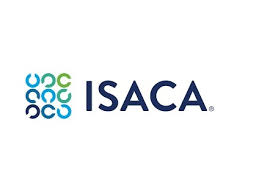Why Coding is Beneficial for Young Learners Today

When we think about what to teach our children, we think of math and sciences. We think of them learning instruments or maybe teaching them a foreign language. Developing brains are like sponges. They absorb all the knowledge available to them, and retain them. And in order for our children to have a leg up in the world, we want them to learn as much as they can.
Living in an ever-evolving world, the newer generations are now presented with knowledge and skills that were not available decades before. Teaching children these skills will not only prepare them for their future professions, but also help them develop the right set of skills to help them through life.
But what does that have to do with teaching children how to code? Simple.
Why children need to learn coding
Coding is a language
Coding uses programming language. When a code is entered into a program, it basically tells the program what to do. It has been found that children who have an aptitude for coding also have an easier time learning new languages. So not only will coding gauge how well a child will take to learn an entirely new language, it will also teach them how to speak the “language of computers.” Imagine how fascinated children will be once they learn what simple programs can do.
Coding helps develop logical thinking
Coding follows a logical flow. In order for a program to run successfully, it needs to be logical. Coding helps kids recognize patterns and lay out instructions in a logical and concise manner. They learn how to build programs through step-by-step procedures, and use conditions and other instructions to get the program to do what they want.
Coding teaches problem-solving skills
One important skill that kids need in life is to know how to use the appropriate approach to solve a problem. For example, if a child wrote instructions for a program to do a particular task and the program did not execute the command successfully, they would need to find the bug and figure out how to solve it, so that it would run properly. Coding will teach children to break down the problem into simple components, and address them at the component level to fix the bug. In order to be successful, the child needs to tweak various parts of the code to fix the program.
Coding builds character
You won’t always achieve the results you want on your first try. There will be errors in your program that you need to fix. Or you might see a better way of writing one part of the code to generate a better outcome. Through all the tweaking and testing and re-coding and re-testing, the entire process teaches children perseverance, humility, and patience. Every time they find a bug and address it, no matter how long it takes them to perfect their programs, this builds perseverance. They have a goal they want to achieve, and they will keep fixing their codes until they get it. They will also need patience when dealing with persistent bugs. Even just learning a new language requires patience. They will learn at their pace, and they will learn approaches that work for them. And most of all, they will learn to ask for help, to accept help, and to offer help. Accepting help and instruction, and learning that they still have a lot to learn will instill humility in kids.
Coding helps set them up for their future
Technology is advancing in leaps and bounds. There is no denying that. Jobs that were non-existent ten years ago are now in demand. Jobs will evolve along with the needs of people and businesses. With coding using various programming languages being the building blocks of AI technology, having kids learn coding at an early age will give them an advantage when they are thrust into the adult world of working. With them learning how to code at an early age, they can take various avenues into the tech industry easily and be amply prepared when they start their jobs as adults. Not to mention, coding can improve communication and collaboration in children who will then carry those into adulthood. When they have those in their arsenal, it would be easier for them to keep the jobs they find.
Coding fosters creativity
Children getting to create their own programs is a way of waking their imagination. Children of the new generation are more drawn to technology. They know more about it than their parents do sometimes. Getting them involved in something they are already interested in ensures that they are engaged. And coming up with fun programs they can create, learning that they have the ability to actually create something will give them a sense of accomplishment — something of a “Look, Ma! No hands!” moment.
Conclusion
Coding can help your children be more prepared for their future. It will help them build a strong work ethic and develop their character, while having fun and feeding their creativity.



